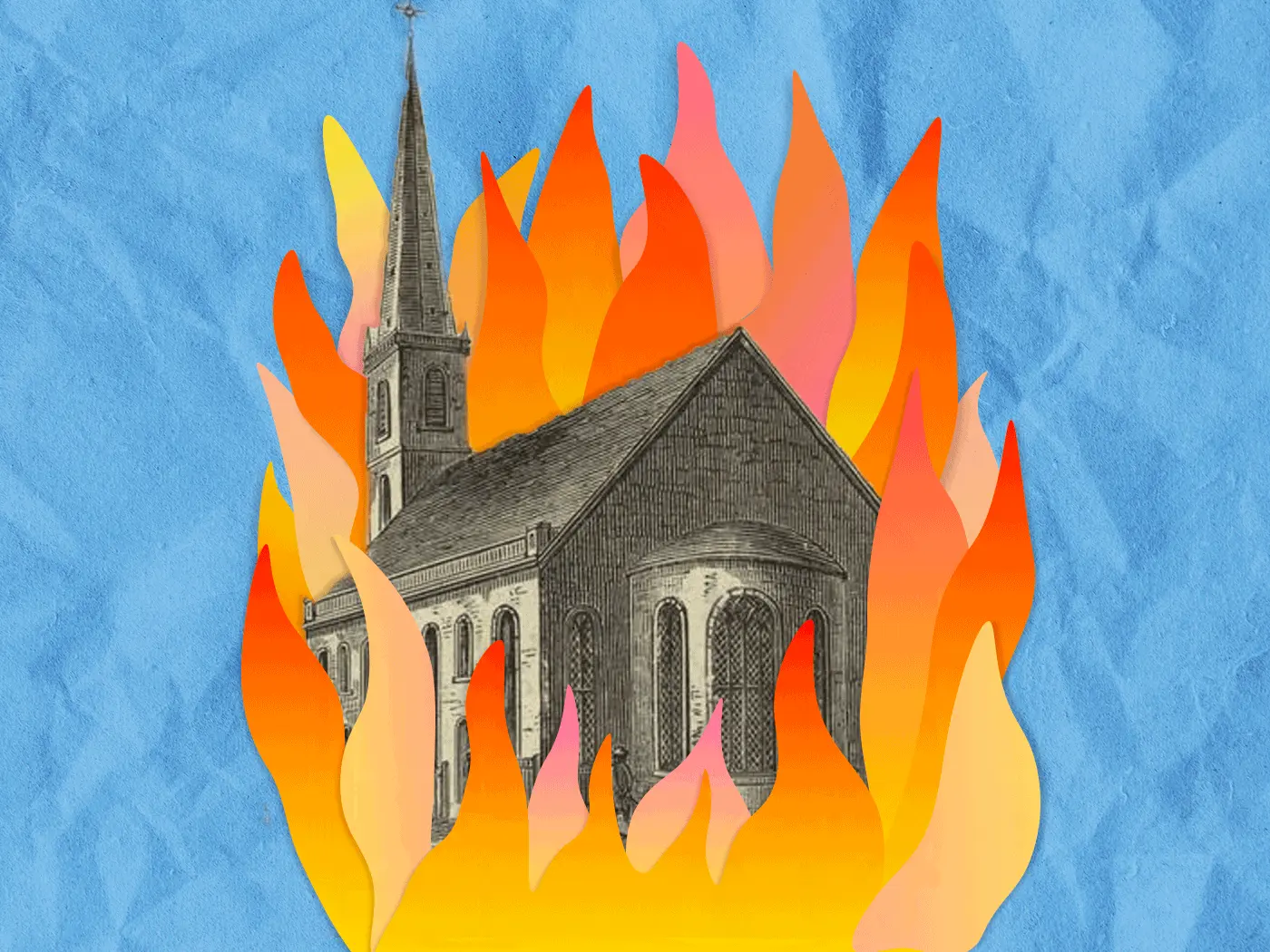Founding Fathers
This History Buff Found a Scrap of George Washington's Tent at Goodwill
The fragment, which was part of Washington's dining marquee during the Revolutionary War, is now on display at a museum in Philadelphia
You Could Own Rare Copies of the Nation's Founding Documents, Just in Time for the Fourth of July
Sotheby's is auctioning early printings of the Declaration of Independence, the Constitution and the Bill of Rights, as well as a 1790 Rhode Island broadside
Benjamin Franklin Was the Nation’s First Newsman
Before he helped launch a revolution, Benjamin Franklin was colonial America’s leading editor and printer of novels, almanacs, soap wrappers, and everything in between
The Real Story Behind Apple TV+'s 'Franklin'
A new limited series starring Michael Douglas as Benjamin Franklin revisits the founding father's years as the American ambassador to France
How Ben Franklin Invented the Library as We Know It
Books were rare and expensive in colonial America, but the founding father had an idea
This Peaceful Nature Sanctuary in Washington, D.C. Sits on the Ruins of a Plantation
Before Theodore Roosevelt Island was transformed into a tribute to the nation's "conservation president," a prominent Virginia family relied on enslaved laborers to build and tend to its summer home there
The Met Is Selling This Rare Portrait of George Washington
Artist Gilbert Stuart painted the work after the president sat for him in late 1795
Breaking Down the United States' Historical Obsession With Christopher Columbus
Columbus became Columbus in the American Revolution—when the colonials sought out an origin story that didn’t involve the British
The Masonic Murder That Inspired the First Third Party in American Politics
Public outcry over whistleblower William Morgan's disappearance gave rise to the Anti-Masonic Party, which nominated a candidate for president in 1832
How George Washington Wrote His Farewell Address
A candle stand used by the first president illuminates his extraordinary last days in office
Did George Washington Order Rebels to Burn New York City in 1776?
A new book points out that the general was happy when the city burned and expressed regret that more of it was not destroyed during the fire
What the Nation's Founders Said About the Indictment of a Former President
Alexander Hamilton wrote that a commander in chief removed from office would be "liable to prosecution and punishment"
This Congressman Was Sworn Into Office With Rare Superman Comic
California’s Robert Garcia says the superhero embodies values like truth and justice
The Little-Known Story of the First Washington Monument
A stone tower in western Maryland, the structure predates the obelisk on the National Mall by more than two decades
A Group of Crypto Investors Is Trying to Buy the Constitution—Again
For the second year in a row, a DAO is vying to bid on a rare first-edition copy
The Noble Fury of Samuel Adams
How America’s “first politician” galvanized a colony—and helped set a revolution in motion
After Selling for $43 Million, Rare Copy of the Constitution Goes on Display
The new exhibition explores diverse interpretations of the document's founding values
The Civil War's First Civilian Casualty Was an Elderly Widow From Virginia
Union gunfire killed 85-year-old Judith Carter Henry on July 21, 1861—the day of the First Battle of Bull Run
Did an Enslaved Woman Try to Warn the Americans of Benedict Arnold's Treason?
New research sheds light on Liss, who was enslaved by the family of a Culper Spy Ring leader and had ties to British spymaster John André
How Do Birds Stay Upright When They Are Sleeping?
You've got questions. We've got experts
Page 1 of 5
:focal(2016x1517:2017x1518)/https://tf-cmsv2-smithsonianmag-media.s3.amazonaws.com/filer_public/81/72/81726c36-88c6-4eca-b2f3-e68903e76119/image_16.jpg)
:focal(1500x1200:1501x1201)/https://tf-cmsv2-smithsonianmag-media.s3.amazonaws.com/filer_public/40/bb/40bb8561-edb9-4da2-9f46-414b307889ba/060524_founding_documents_011-v2.jpg)
:focal(1600x1204:1601x1205)/https://tf-cmsv2-smithsonianmag-media.s3.amazonaws.com/filer_public/15/37/15372488-30c0-4d7b-8ae4-b902a92d1b1c/20240321_smithsonian_bfranklin_0208_copy.jpg)
:focal(700x527:701x528)/https://tf-cmsv2-smithsonianmag-media.s3.amazonaws.com/filer_public/67/09/67093a85-b160-42fc-b0d1-19e3712e2fdf/benf.jpg)
:focal(524x409:525x410)/https://tf-cmsv2-smithsonianmag-media.s3.amazonaws.com/filer_public/01/d6/01d64905-b6fa-4ddc-84de-d0d95be7396d/aprmay2024_b08_prologue.jpg)
:focal(700x527:701x528)/https://tf-cmsv2-smithsonianmag-media.s3.amazonaws.com/filer_public/6a/b5/6ab5142a-4b88-46b9-8fdc-86f8fcf3bee1/mason2.jpg)
:focal(2750x1990:2751x1991)/https://tf-cmsv2-smithsonianmag-media.s3.amazonaws.com/filer_public/4d/77/4d77904a-868c-4723-b6bc-4c6500e4221f/gw_1.jpg)
:focal(1500x1029:1501x1030)/https://tf-cmsv2-smithsonianmag-media.s3.amazonaws.com/filer_public/f5/03/f503cf85-4fa8-4889-8c5b-180d906f1403/gettyimages-77212742.jpg)
:focal(700x527:701x528)/https://tf-cmsv2-smithsonianmag-media.s3.amazonaws.com/filer_public/87/1c/871c1867-4f60-479e-a918-20a0a7330ba0/morgan.jpg)
:focal(1895x1552:1896x1553)/https://tf-cmsv2-smithsonianmag-media.s3.amazonaws.com/filer_public/b7/f3/b7f3a1b1-23ca-4297-bb99-ce24c59cb190/opener_-_julaug2023_g04_prologue.jpg)

:focal(1146x851:1147x852)/https://tf-cmsv2-smithsonianmag-media.s3.amazonaws.com/filer_public/47/78/4778ff47-78ad-4eee-a0c6-dab376ef53df/duel_between_aaron_burr_and_alexander_hamilton.jpeg)
:focal(2841x1894:2842x1895)/https://tf-cmsv2-smithsonianmag-media.s3.amazonaws.com/filer_public/13/23/1323a448-4a7d-48df-8b49-293f74d80729/gettyimages-1442616263.jpg)
:focal(2784x1856:2785x1857)/https://tf-cmsv2-smithsonianmag-media.s3.amazonaws.com/filer_public/cd/8b/cd8bda93-f62d-4f57-931f-d50761529283/dsc_6583.jpg)
:focal(577x385:578x386)/https://tf-cmsv2-smithsonianmag-media.s3.amazonaws.com/filer_public/f9/58/f958ea2c-df3f-4623-8fd5-862da97ca90d/download.jpeg)
:focal(1761x2010:1762x2011)/https://tf-cmsv2-smithsonianmag-media.s3.amazonaws.com/filer_public/2b/80/2b80f06e-a978-4b86-9262-f53042abbed8/sam_adams_b2.jpg)
:focal(2698x1799:2699x1800)/https://tf-cmsv2-smithsonianmag-media.s3.amazonaws.com/filer_public/d8/66/d866a741-6d70-49a7-bd93-1dcb1e55fa75/gettyimages-1340911395.jpg)
:focal(891x741:892x742)/https://tf-cmsv2-smithsonianmag-media.s3.amazonaws.com/filer_public/46/04/46043955-0cbc-403d-9f49-07c209dfc5bc/screen_shot_2022-07-19_at_123708_pm.png)
:focal(700x527:701x528)/https://tf-cmsv2-smithsonianmag-media.s3.amazonaws.com/filer_public/b4/a9/b4a9d42d-1fe9-4fea-9ac6-ce05c083372e/liss.jpg)
:focal(1200x909:1201x910)/https://tf-cmsv2-smithsonianmag-media.s3.amazonaws.com/filer_public/29/78/2978f2f2-e5f8-4307-b8e1-78b99e410581/aprmay2022_f01_asksmithsonian.jpg)